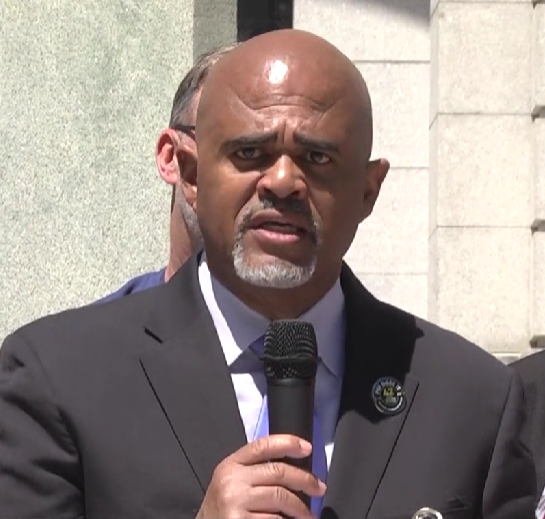An AFFT member, who asked to remain anonymous due to the tricky political situation with his workplace union, the Public Employees Federation (PEF), said that he is not alone when he points out that PEF “doesn’t represent its parole members properly.”
This member, who is a parole officer, knows that civilian workers and law enforcement officers have different roles and responsibilities in their respective workplaces. PEF is a civilian union which represents a wide array of professions including nurses, attorneys, and engineers. Many parole officers in New York would prefer to be represented by an independent law enforcement union, which they believe would be better equipped to help them with their workplace issues.
“A lot of parole officers are dissatisfied with being a member of PEF,” he said. PEF has not fought to gain access to typical law enforcement benefits for its parole officers. For example, parole officers in PEF do not have the same retirement plan as correction officers or other law enforcement officers, typically called a “twenty-and-out” or “twenty-five-and-out.” Meaning, a law enforcement officer can retire with a full government pension after working twenty or twenty-five years of public service and these plans do not have an age restriction.
Meanwhile, parole officers’ retirement plans under PEF require more years of public service and have age restrictions. For example, parole officers either have to work thirty years and retire at age 55 (Tier 4) or work thirty years and retire at age 63 (Tier 6) in order to receive a full retirement pension.
This member asserts that there should be retirement and benefits parity since both correction and parole officers “deal with the same population” and work for the same agency. “Correction officers deal with them while they’re inside prison,” the member said, “We deal with them when they’re outside prison and we do a form of community corrections.”
Even more hurtful to our member is that PEF’s president, Wayne Spence, is also a parole officer. Spence allegedly held similar views about PEF not representing parole officers’ interests and he and a group of parole officers unsuccessfully tried to fragment from PEF in 2004, but once he became PEF’s president, he changed his tune. “It’s hypocritical,” the member panned.
Another major issue facing parole officers who are PEF members is the political double-speak when it comes to candidate endorsements. On the issue of parole reform, the union endorsed political candidates whose “parole reforms are not aligned with the work we’re doing,” the member said. But in the same breath, the union “tries to act like it’s the biggest opponent of parole reform.”
“There are options out there,” the member shared, “The main reason why members, including myself, are hesitant to leave a union is because you feel like you’re going to lose all your benefits and legal representation.” He added, “But there are alternatives, like the American Public Servants’ Association (APSA) who provides legal representation, or the Professional Law Enforcement Association (PLEA) who provides specific law enforcement legal representation.” These alternative organizations’ fees are “less than PEF’s annual union dues,” he said, “And when you leave a union, you don’t lose much.”
“I’m a pro-union supporter, but members have to be in the right union,” he said, “I’m glad for the Janus v. AFSCME decision and now it’s an even playing field for members like me.” “That’s why I opted out of PEF and no longer pay union dues. PEF is “all about the money,” the member noted. If all 800 parole officers opted out, with $700 in annual dues for each officer, “that’s over $500,000 in dues that PEF won’t be receiving anymore,” he told AFFT. Parole officers would have a better chance of breaking away from PEF.
Currently, parole officers have a Change.org petition asking PEF to allow them to fragment and join an independent law enforcement union, the New York State Correctional Officers & Police Benevolent Association (NYSCOPBA). In their words, parole officers “got the short end of the stick when they were not given the opportunity to join” the same union as correction officers.
This member’s story about PEF demonstrates the importance of having a local union that is in tune with the needs of its members instead of a union more concerned about collecting dues.
